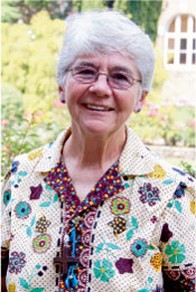A Quote by Dorothy Stang
Related Quotes
The dignity to be sought in death is the appreciation by others of what one has been in life,... that proceeds from a life well lived and from the acceptance of one's own death as a necessary process of nature.... It is also the recognition that the real event taking place at the end of our life is our death, not the attempts to prevent it.
Birth leads to death, death precedes birth. So if you want to see life as it really is, it is rounded on both the sides by death. Death is the beginning and death is again the end, and life is just the illusion in between. You feel alive between two deaths; the passage joining one death to another you call life. Buddha says this is not life. This life is dukkha - misery. This life is death.
Faith shall save your Soul from Death. Without Faith, Death is a drowning, the end of ends, and what sane man wouldn't fear that? But with Faith, Death is nothing worse than the end of the voyage we call life, and the beginning of an eternal voyage in a company of our Loved Ones, with griefs and woes smoothed out, and under the capacity of our Creator.
By 'coming to terms with life' I mean: the reality of death has become a definite part of my life; my life has, so to speak, been extended by death, by my looking death in the eye and accepting it, by accepting destruction as part of life and no longer wasting my energies on fear of death or the refusal to acknowledge its inevitability. It sounds paradoxical: by excluding death from our life we cannot live a full life, and by admitting death into our life we enlarge and enrich it.
Laughter. Yes, laughter is the Zen attitude towards death and towards life too, because life and death are not separate. Whatsoever is your attitude towards life will be your attitude towards death, because death comes as the ultimate flowering of life. Life exists for death. Life exists through death. Without death there will be no life at all. Death is not the end but the culmination, the crescendo. Death is not the enemy it is the friend. It makes life possible.
Death is not the end, but the beginning of a new life. Yes, it is an end of something that is already dead. It is also a crescendo of what we call life, although very few know what life is. They live, but they live in such ignorance that they never encounter their own life. And it is impossible for these people to know their own death, because death is the ultimate experience of this life, and the beginning experience of another. Death is the door between two lives; one is left behind, one is waiting ahead.
LIFE IS A DIVINE GIFT. The divine is not something outside of us; it is right in our very center; it is our freedom. In our training, we learn the real nature of life and death. When life is victorious, there is birth; when it is thwarted, there is death. A warrior is always engaged in a life-and-death struggle for peace.



































